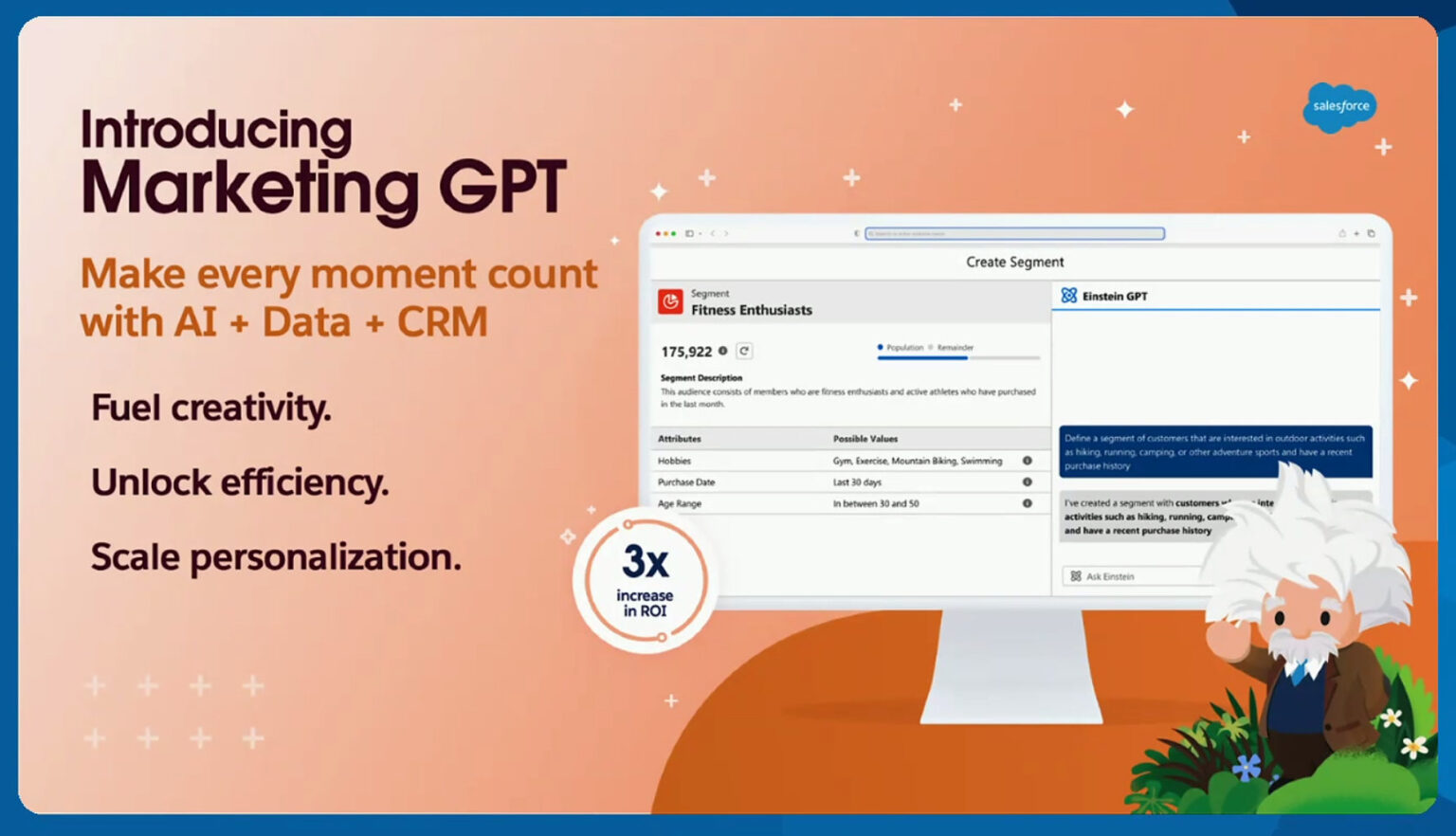Salesforce Unveils Marketing GPT and Commerce GPT Solutions Based on Generative AI
Salesforce Revises GPT Naming
At its Connections event in Chicago, Salesforce unveiled Marketing GPT and Commerce GPT, two new solutions based on generative AI. With this, Salesforce gives more substance to its GPT initiatives that it already showed earlier this year. Today it introduces the marketing assistant that gets the job done.
Salesforce is currently organizing the Connections event in Chicago. Here it gives full attention to the company’s marketing and commerce solutions. This also includes new products, or at least product features. The path that Salesforce took earlier with Einstein GPT is taking shape again here. For example, today it revealed Marketing GPT and Commerce GPT.
The observant Salesforce follower may have already seen it, but Salesforce has revised the naming of the GPT portfolio. As far as we are concerned, it has been made a lot clearer. Earlier this year, it was still using “Einstein GPT for …..” everywhere, filling in the dots for sales, service, marketing, developers, or Slack. Now it’s just Marketing GPT and Commerce GPT, just like it’s just Slack GPT and Tableau GPT. Einstein GPT is sort of an umbrella brand name, we’re told.
Marketing GPT: A Personal Marketing Assistant
So the preview we saw earlier of Einstein GPT for Marketing was an initial version of Marketing GPT that the company now presents in more detail. With Marketing GPT, Salesforce customers have the opportunity to receive support from a generative AI through a chat interface in the execution of their marketing activities. It can best be compared to a personal marketing assistant, but one that immediately does what you do and doesn’t have to drink coffee first, need a bathroom break, or pick up the kids from school. This personal assistant produces the result of your query within seconds; the speed depends on this depending on how difficult the question is.
What can you expect? In the demo earlier this year, they showed how you can ask an AI to submit landing pages via a chat interface. Salesforce now also adds personalized emails (templates). In addition, it will be possible to test and improve them for more engagement.
Audience segmentation is always a job in itself in marketing campaigns. After all, who exactly do you want to reach? Which filters are the best to set? Etcetera. Via the chat interface you can explain in a natural way who you want to reach and then the AI makes the target group segmentation with associated filters.
With Marketing GPT you can also obtain more information and knowledge about the target group. There is an automatic link with the Data Cloud, in which it can collect customer data and turnover figures. In addition, it is possible to easily enrich this with third party data.
Furthermore, Salesforce Marketing has provided GPT with functions to create texts and images. This can be done by specifically asking for this, for example “write an informal promotional text about…”, but it can also be based on brand voice.
Conclusion
Salesforce has made great strides in the development of its GPT portfolio. With the introduction of Marketing GPT and Commerce GPT, the company has made it easier for customers to get the most out of their marketing and commerce activities. By providing a personal assistant that can quickly and accurately answer questions, Salesforce has made it easier for customers to get the most out of their marketing and commerce activities. The AI-powered solutions also make it easier to segment audiences, obtain customer data, and create texts and images. With these new solutions, Salesforce is making it easier for customers to get the most out of their marketing and commerce activities.





